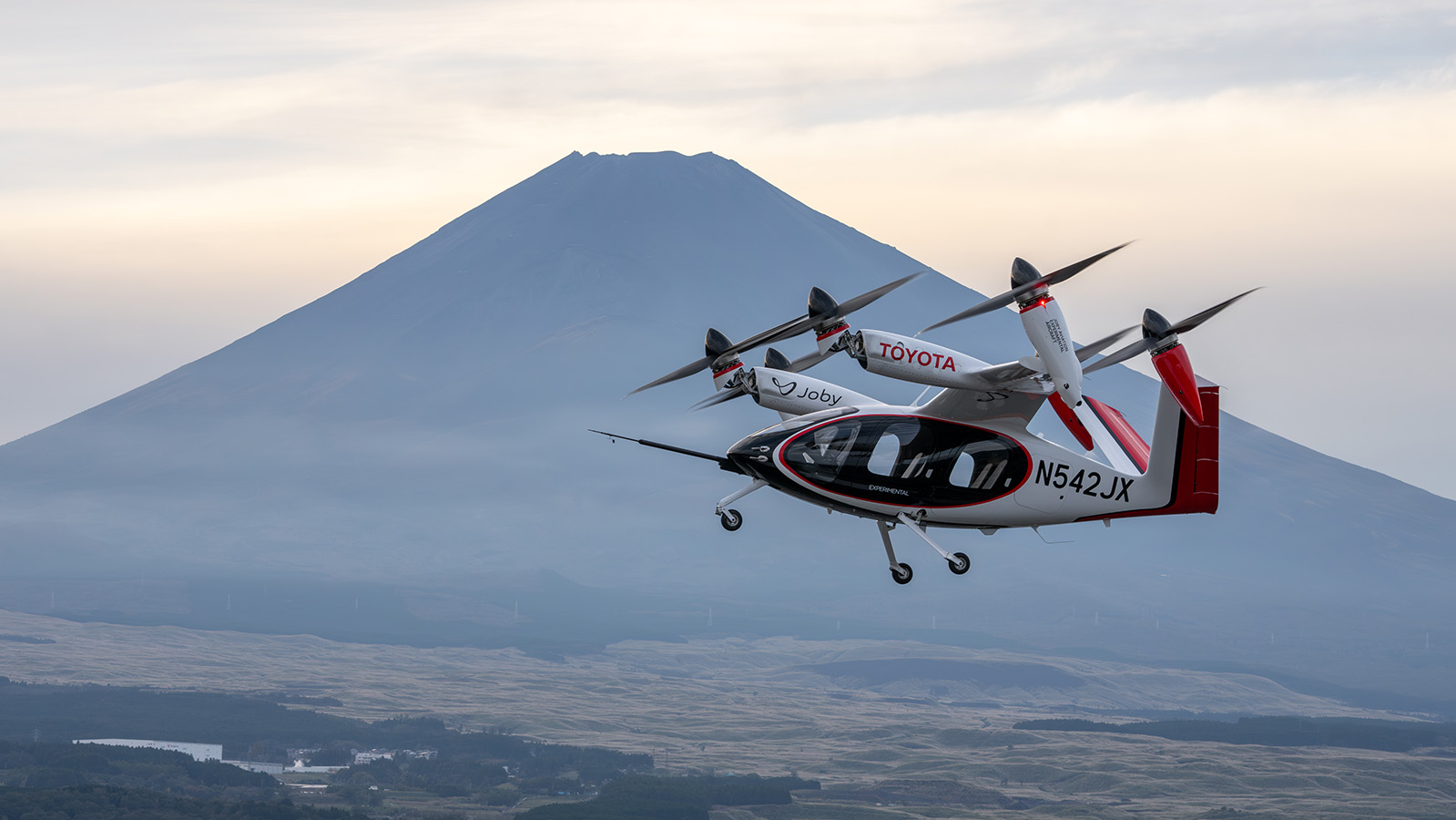Stay Up to Date
Submit your email address to receive the latest industry and Aerospace America news.
Japan’s densely populated cities and history of firsts in transportation, such as the first high-speed or “bullet” train in 1964, have made it a focus for early introduction of electric air taxis.
Both Archer Aviation of Silicon Valley and Joby Aviation of Santa Cruz, California, had Japan-related events this week, as they seek certification from FAA in the U.S. and in other nations for their aircraft.
Joby, which has Japan-based Toyota as a major investor, announced Nov. 4 that it flew one of its four-passenger S4s in Japan for the first time in a demonstration near Mount Fuji. But the company hasn’t announced plans to carry passengers commercially in Japan.
For more about advanced air mobility, receive the True Mobility newsletter in your inbox.
Archer announced Thursday that it intends to sell up to 100 of its Midnight aircraft, also designed to seat four passengers, to be deployed in major Japanese cities to shuttle Japan Airlines customers to airports. The aircraft would be purchased and operated by Soracle Corp., a joint venture of the airline and Sumitomo Corp. of Tokyo, the companies said in press releases.
Archer and Joby also plan to conduct demonstration flights at the World Expo 2025 in Osaka.
Archer took interest in Japan Airlines because it serves 65 airports in the island nation, says Andrew Cummins, Archer’s senior director of strategy and business development.
“Archer is focused on markets where we can deploy a significant number of aircraft over time, and Japan is a good place for that. Tokyo and Osaka are where we would focus first,” Cummins told me. “Japan has always been a leader in transportation and infrastructure. This is another signal of them wanting to lead.”
Cummins said one sure route in Tokyo would be from the center of the city to Narita International Airport, a trip that can take two hours via roads or rails.
Archer plans to operate its aircraft as an airline in the U.S., while also selling the aircraft to partners in other countries. “We believe that it is much more effective for us to partner with skilled operators who have the local knowledge, expertise, credibility and understanding of how to operate in other nations,” Cummins said.
Despite the enthusiasm, it’s not certain when Japan will see commercial service with electric air taxis. Cummins said he believes the United Arab Emirates will be first, outside the U.S., due to the commitment of the government there to certifying air taxis quickly, likely before FAA.
About paul brinkmann
Paul covers advanced air mobility, space launches and more for our website and the quarterly magazine. Paul joined us in 2022 and is based near Kennedy Space Center in Florida. He previously covered aerospace for United Press International and the Orlando Sentinel.
Stay Up to Date
Submit your email address to receive the latest industry and Aerospace America news.




